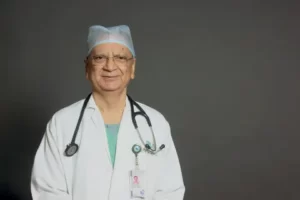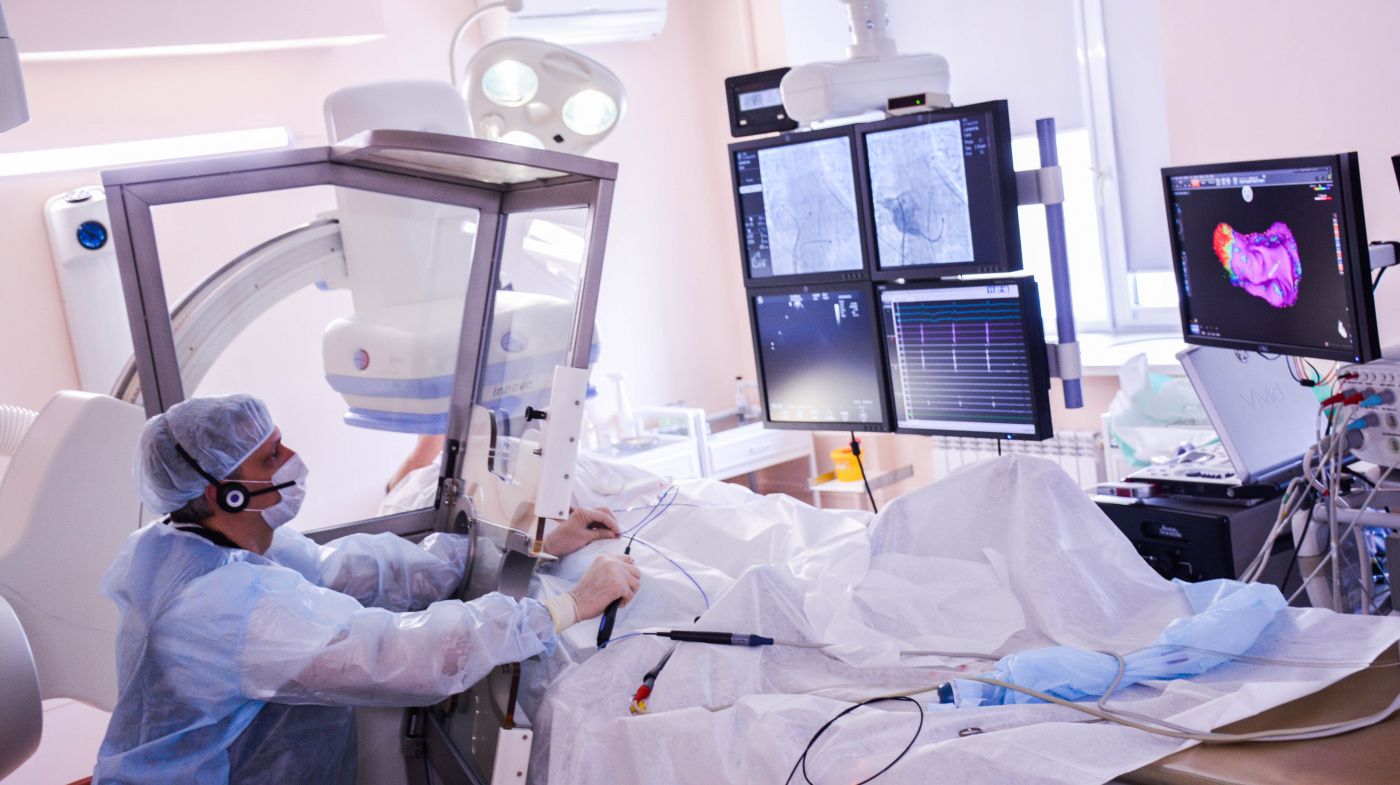Are you looking for expert care and treatments from Cardiologists in Sydney? If so, you’re in luck! In this blog post, we’ll discuss seven of the most effective treatment plans available in Sydney, as revealed by leading Cardiologists. Discover more about these treatments and how they can help you manage your cardiovascular health!
Cardiac Catheterization
Cardiac catheterization is a procedure where a thin tube called a catheter is inserted through an artery in the groin or arm and passed up to the heart. This is done to diagnose and treat heart conditions. During the procedure, your cardiologist will inject a special dye into your arteries and take X-ray images to identify any blockages or abnormalities in the heart. Once your cardiologist has identified the issue, they may perform further treatment procedures such as a Percutaneous Coronary Intervention (PCI) or a Coronary Artery Bypass Grafting (CABG) surgery. Cardiac catheterization is usually performed under local anesthesia and sedation; most patients can go home on the same day of the procedure. It’s essential to talk to your cardiologist to understand why this procedure is recommended. Your cardiologist can help answer any questions you may have and prepare you for what to expect before, during and after the procedure. A cardiac catheterization is a vital tool for diagnosing and treating heart conditions, and our expert cardiologists at our Sydney clinics are highly experienced in performing this procedure. Contact us today to learn more about our cardiac catheterization services.
 Percutaneous Coronary Intervention (PCI)
Percutaneous Coronary Intervention (PCI)
Percutaneous Coronary Intervention (PCI), also known as angioplasty, is a minimally invasive procedure commonly performed by cardiologists to treat blocked or narrowed coronary arteries. This procedure involves the insertion of a catheter into the artery, followed by placing a small balloon at the site of the blockage. The balloon is then inflated, which pushes the blockage against the artery walls, creating more space for blood to flow through. A stent is a small mesh tube inserted into the artery to help keep it open. The stent is usually placed after the balloon has been inflated and left in place permanently. In some cases, a stent may also be placed during the procedure. PCI is often used to treat coronary artery disease (CAD), a condition that occurs when plaque builds up in the arteries, causing them to narrow or become blocked. The most common symptoms of CAD are chest pain, shortness of breath, and fatigue. If left untreated, CAD can lead to heart attack, heart failure, and other serious complications. PCI is generally considered a safe and effective treatment option for CAD, and it can often be performed on an outpatient basis. However, as with any medical procedure, there are risks involved. Some potential complications of PCI include bleeding, infection, allergic reactions, and damage to the artery or surrounding tissues. Before undergoing PCI, patients will typically undergo a thorough evaluation to determine if the procedure is appropriate for them. This may involve a physical exam, blood tests, imaging studies, and other diagnostic tests. If you are experiencing symptoms of CAD, it is important to seek medical attention as soon as possible. An experienced cardiologist can help determine the best treatment plan for your individual needs, and PCI may be a viable option for restoring blood flow to your heart and improving your overall health and quality of life.
Coronary Artery Bypass Grafting (CABG)
Coronary artery bypass grafting, also known as CABG, is a type of heart surgery that helps improve blood flow to the heart. This treatment is usually recommended for patients who have significant blockages in their coronary arteries, which can cause chest pain and increase the risk of a heart attack. During the surgery, a cardiac surgeon will take a healthy vein or artery from another part of the patient’s body and use it to bypass the blocked or damaged coronary artery. This new blood vessel, called a graft, will redirect blood flow around the blocked artery and help restore normal blood flow to the heart. CABG is typically performed under general anesthesia and takes several hours to complete. Patients may need to stay in the hospital for several days after the surgery to monitor their progress and ensure they are recovering well.
Valve Surgery
Valve surgery is a type of procedure performed to repair or replace a diseased or damaged heart valve. The valve can become diseased due to age, infection, or a congenital defect. A damaged valve can affect the blood flow through the heart, leading to several complications. Cardiologists in Sydney use valve surgery as a treatment plan for patients who have moderate to severe valve damage. There are two types of valve surgery, which include repair and replacement. During valve repair surgery, the damaged valve is not completely removed but repaired. The repair process includes several techniques such as valve resurfacing, annuloplasty, or commissurotomy. This type of surgery is preferred as it allows the patient to keep their own valve, which is healthier in the long term. If the valve damage is extensive, replacement surgery is preferred. In this type of surgery, the damaged valve is completely removed, and a prosthetic valve is placed in its position. The prosthetic valve can either be mechanical or biological. A mechanical valve lasts longer, but blood-thinning medications are required for the rest of the patient’s life. In contrast, a biological valve does not require medication, but its durability is shorter.
Trans catheter Aortic Valve Replacement (TAVR)
Another advanced treatment for aortic valve disease is Trans catheter Aortic Valve Replacement or TAVR. This minimally invasive procedure involves inserting a catheter with a collapsed replacement valve through a small incision in the groin and guiding it to the diseased valve. The replacement valve is then deployed and expanded, pushing the damaged valve aside and taking over its function. TAVR is often recommended for patients who are not suitable for traditional open-heart valve replacement surgery, either due to age or other medical conditions. This procedure has been found to improve survival rates and quality of life in such patients. However, TAVR is not without risks. Complications may include bleeding, infection, stroke, and heart attack. Therefore, careful patient selection and close monitoring before, during, and after the procedure are crucial.
Cardiac Resynchronization Therapy (CRT)
For patients suffering from heart failure, Cardiac Resynchronization Therapy (CRT) can be a highly effective treatment plan. CRT works by improving the coordination and synchronization of the heart’s contractions, which in turn increases the heart’s overall efficiency. CRT involves the insertion of a small device, called a CRT pacemaker or defibrillator, under the skin in the chest. The device sends small electrical impulses to the heart, which help to regulate the heart’s rhythm and improve the coordination of its contractions. The procedure to insert the CRT device is minimally invasive and typically only takes a few hours to complete. Recovery time is relatively short, and patients usually only need to stay in the hospital for a day or two following the procedure. One of the major benefits of CRT is its ability to improve symptoms of heart failure, including shortness of breath and fatigue. It can also reduce the risk of hospitalization and improve the overall quality of life for patients.
Implantable Cardioverter Defibrillators (ICDs)
Implantable Cardioverter Defibrillators, also known as ICDs, are small devices that are surgically implanted into the chest. They are used to monitor the heart’s rhythm and to treat dangerous and potentially life-threatening heart arrhythmias. ICDs work by delivering a shock to the heart to restore normal heart rhythm when an abnormal rhythm is detected. ICDs are typically recommended for patients who have survived sudden cardiac arrest, have a history of ventricular tachycardia or ventricular fibrillation, or are at a high risk for these conditions. They are also recommended for patients who have undergone heart surgery or have certain types of heart disease. The implantation procedure is typically performed under local anesthesia with sedation and usually takes less than two hours to complete. A small incision is made in the chest, and the ICD device is inserted under the skin near the collarbone.
Conclusion
If you’re suffering from any type of heart condition, it’s important to know that there are a variety of treatment options available. Expert cardiologists in Sydney can offer the most advanced treatment plans to improve your heart’s health. Depending on your condition, your cardiologist may suggest cardiac catheterization, percutaneous coronary intervention, coronary artery bypass grafting, valve surgery, trans catheter aortic valve replacement, cardiac resynchronization therapy, or implantable cardioverter defibrillators. By seeking out the care of a reputable cardiologist, you can improve your heart health and avoid complications related to heart disease. The important thing to remember is to always take care of your heart, watch for warning signs of heart disease, and see your cardiologist for routine check-ups and care. With the right treatment plan, you can have a healthy heart and a happier life.
Related Websites:
Articles on Blogshunt
Articles on Blogseu
Articles on Blogspeoples
Articles on Thebigblogtheory
Articles on Allcityforums



